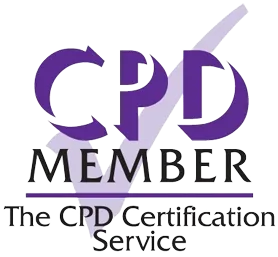28 Mar 2025
Recommended
Minimum 30 mins
Course
Access
Certification
Voiceover

This training course is specifically designed for healthcare professionals in the UK Health and Social Care sector and the NHS, equipping them with the essential knowledge and skills to recognise and manage anaphylaxis—a severe and potentially life-threatening allergic reaction.
Aligned with the latest UK clinical guidelines, including those from the Resuscitation Council UK, this course ensures that participants can respond swiftly and effectively to anaphylactic emergencies. Participants will gain expertise in identifying early symptoms, administering life-saving treatments such as adrenaline, and educating patients and families on prevention and emergency preparedness.
By completing this course, healthcare professionals will enhance their competency in evidence-based practice, improving patient safety and fostering a culture of excellence in clinical care.

 £20
£20
Learning Outcomes.
By the end of this course,participants will be able:
To integrate the latest clinical guidelines and research into practice, ensuring high-quality and evidence-based care.
To develop personalised care plans for individuals at risk of anaphylaxis, incorporating preventive measures and follow-up care.
To educate patients and families on allergen avoidance, emergency action plans, and the appropriate use of epinephrine auto-injectors.
To implement emergency management protocols, including adrenaline administration, patient positioning, and adherence to UK-specific guidelines.
To describe the pathophysiology of anaphylaxis, including its systemic effects and underlying immune mechanisms.
To recognise the early signs and symptoms of anaphylaxis and differentiate it from less severe allergic reactions.
Course
Contents.
01
Definition, causes, common triggers, and immune mechanisms behind anaphylaxis.
03
Step-by-step management of anaphylactic emergencies, including adrenaline administration.
05
Educating patients on trigger avoidance, providing emotional support, and planning follow-up care.
08
Empowering patients and families with knowledge on prevention and emergency preparedness.

06
Application of the ABCDE approach, use of auto-injectors, oxygen therapy, and IV fluid administration.
09
Understanding UK-specific frameworks and regulations, including the latest Resuscitation Council UK guidance.
02
Differentiating mild, moderate, and severe allergic reactions from other medical conditions.
04
Handling cases where initial treatments fail to resolve symptoms.
07
Developing and implementing strategies to reduce risks and improve care quality.
10
Staying up-to-date with emerging research and evidence-based practices in anaphylaxis care.
The Anaphylaxis Recognition and Management training course is an essential resource for healthcare professionals aiming to enhance their skills in identifying and managing anaphylaxis. By aligning with the latest UK guidelines, this course ensures participants are equipped to deliver timely and effective care, safeguard patient safety, and promote better outcomes in emergency situations.
 Summary
Summary


